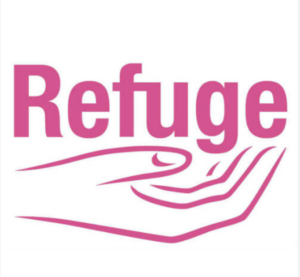What can I do to help?
Create a safe space. Make sure you speak in private. Make it clear you won’t judge. Only then might she feel safe enough to open up.
Tell her you’re worried. Try “You haven’t seemed yourself lately. Is there anything you want to talk about? Is everything OK at home?”
Take her seriously. Listen. Believe her. Women are often dismissed. They’re told he seems like a nice guy, or a great dad. Trust what she says.
Tell her it’s not her fault. Your friend might blame herself. Tell her she is not to blame. He alone is responsible.
Don’t judge her. Don’t ask why she hasn’t left or judge her choices. Instead, build her confidence and focus on her strengths.
Remind her she’s not alone. She may have been deliberately isolated. Say you are there for her, and that there are solutions and that support is available.
Encourage her to contact us. Reassure her that she can contact us 24 hours a day, 365 days a year. Help her find out about her rights and options.
Give her time. It might take a long time before she confides in you. Be patient. Recognising the problem is the first step.
How can I help her and her children stay safe?
The safety of your friend or loved one – and her children – is paramount. Talk to her about how she can stay safe. You could:
- Agree on a code word so she can signal when she is in danger and needs you to get help
- Find out about services which could support her locally or nationally
- Offer to keep a spare set of keys for her or important documents, such as passports, bank account details and benefit information so that she can access them quickly in an emergency
- Keep a log of the abusive incidents; encourage her to visit the GP and keep copies of emails and texts
- Encourage her to call Refuge’s National Domestic Abuse Helpline to discuss safety planning
Remember, in an emergency and if you fear for your friend’s safety, always call 999.
Why won’t she leave?
It takes a great deal of courage to leave someone who controls and intimidates you. Try not to put pressure on your loved one to leave right away. Leaving is not a single act – it is a process that takes time. Let her know that you are there for her, no matter what she decides to do.
There are many practical and psychological barriers to ending a relationship with an abusive partner, including:
- Safety: She may be fearful of what the abuser will do to her and the children if they leave or attempt to leave
- Lack of self-confidence: She may believe that it is her fault and that she deserves the abuse, and may fear she would never find anyone else if she left
- Denial: She convinces herself that “it’s not that bad”
- Shame: She is embarrassed about people finding out
- Guilt: The abuser makes her believe that she is to blame for his actions
- Financial dependence:The woman may not be able to support herself and her children independently. See our page about economic abuse.
- Loyalty: She may be loyal to the abuser regardless of his actions
- Hope: She believes that things will improve with time, or that she can make him change
- Lack of support: She doesn’t know where to turn for help
- Pressure: Family and friends pressure her to stay and ‘make it work’
- Religious/community beliefs: She is under pressure not to break up the family
- Love: Despite the abuse, she still loves him
- Jekyll and Hyde: The abuser switches between charm and rage; the woman thinks ‘He’s not always like this’
- Intimidation: The abuser threatens to take the children or pets away
- Gender roles: She might normalise his behaviour because he’s a man – ‘that’s how men are’. She may believe it’s the woman’s role to put the needs of others first
- Immigration: If she has insecure immigration status, she may fear being deported
Please click HERE for more information about the Refuge Charity.

DISCLAIMER
This article is for information only and should not be used for the diagnosis or treatment of medical conditions. Essential Parent has used all reasonable care in compiling the information from leading experts and institutions but makes no warranty as to its accuracy. Consult a doctor or other health care professional for diagnosis and treatment of medical conditions. For details
click here.

